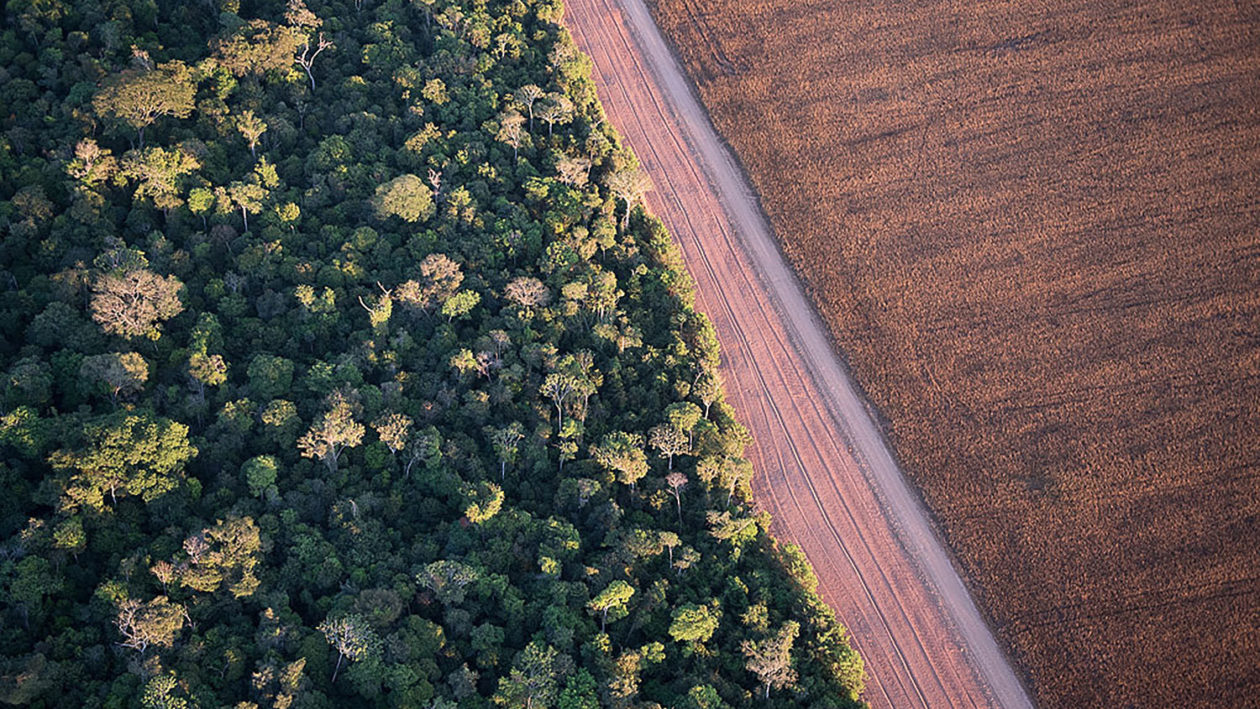Over the last decade, environmental awareness has massively increased. A rise in media coverage and the growth of environmentalist groups has ensured that more and more people have begun adjusting their everyday habits in an attempt to reduce their carbon footprints. But even if everyone made changes such as “meat-free Mondays” or shopped more sustainably, would this be enough to save the planet? Or does saving the environment depend upon changes within mass corporations? Although many UK companies have announced plans to increase their sustainability, is enough really being done?
In the last thirty years, over a million acres of the world’s rainforests have been tragically destroyed. This figure is partially a result of an increased global population. With more people on the planet than ever before, demand for resources such as food and materials continues to rise, resulting in a higher percentage of forest space utilized to harvest livestock and crops. In 1980, the global population was approximately 4.5 billion, while today’s figure is around 7.8 billion, mainly thanks to longer life expectancy. To keep up with demand, many major companies have attempted to find the most economical methods to source materials which often comes at the expense of destroying the Earth’s natural treasures, most worryingly, Brazil’s rainforests.
Over a third of the 3.2 million tonnes of soya annually imported into the UK is from Brazil, directly harming both the Amazon and Brazil’s lesser-known Cerrado Savannah. Covering over 20% of Brazil, the Cerrado Savannah is made up of an extremely biodiverse landscape, home to 1,600 species of birds, reptiles and mammals and 10,000 types of plant. However, with only 3% under legal protection, the Cerrado Savannah has become a hotspot for agricultural exploitation, with between 50% to 80% of the area replaced with cattle ranches and soya farms, ultimately increasing deforestation and wildfires. Cargill, an agribusiness, is responsible for importing 10,000 tonnes of soya from Cerrado into the UK annually to feed livestock which is used by household chains such as Tesco, Lidl, Asda and McDonalds.
Perhaps it is down to individuals to save the planet? Figures show that skipping one serving of meat once a week can annually save the same emissions as driving 348 miles in a car. The Sustainable Trade Initiative has declared that only 14% of soya imports are certified “deforestation-free” so, theoretically, if the global population was to become vegetarian, this figure would be reduced as the demand for soya would be greatly lowered. But of course, this is unrealistic. With 9.2% of the global population living in poverty, it is no surprise that for many, saving the planet is not a priority in 2021. Furthermore, for many communities, the regular consumption of meat is ingrained into cultural practices, making many feel that saving the planet comes at the cost of destroying identities.
Is there still hope for planet Earth? The simple answer is, yes, but these issues cannot be fixed overnight.
Climate change has only featured in the mainstream media within the last couple of decades. Whilst environmental consciousness is a fairly recent phenomenon, it shows that as a society we are moving in the right direction, caring about, and doing more for, the planet than ever before. However, these are merely the beginnings of an environmental revolution. It is easy to demonise brands which trade with Cargill but there are some signs of sustainable progression. For example, Tesco’s “Little Helps Plan”, aims to ensure all soy comes from regions that are verified as deforestation-free by 2025. Last year, Tesco met their target of achieving zero net deforestation, reflecting an increased institutional interest in the environment, as opposed to during the 20th century.
Profit-driven companies are finally adapting to become more environmentally conscious demonstrating more customers are demanding sustainable products, reflecting a cultural shift towards environmentalism. By publicising sustainability initiatives, businesses are contributing to making sustainable living a social norm. Although environmental consciousness is a fairly new concept for both businesses and the general public, saving the planet has become a huge part of 21st-century culture and if this enthusiasm continues, then the natural world will survive.
Madeleine Williams
Wikimedia Commons: YaleEnvironment360

